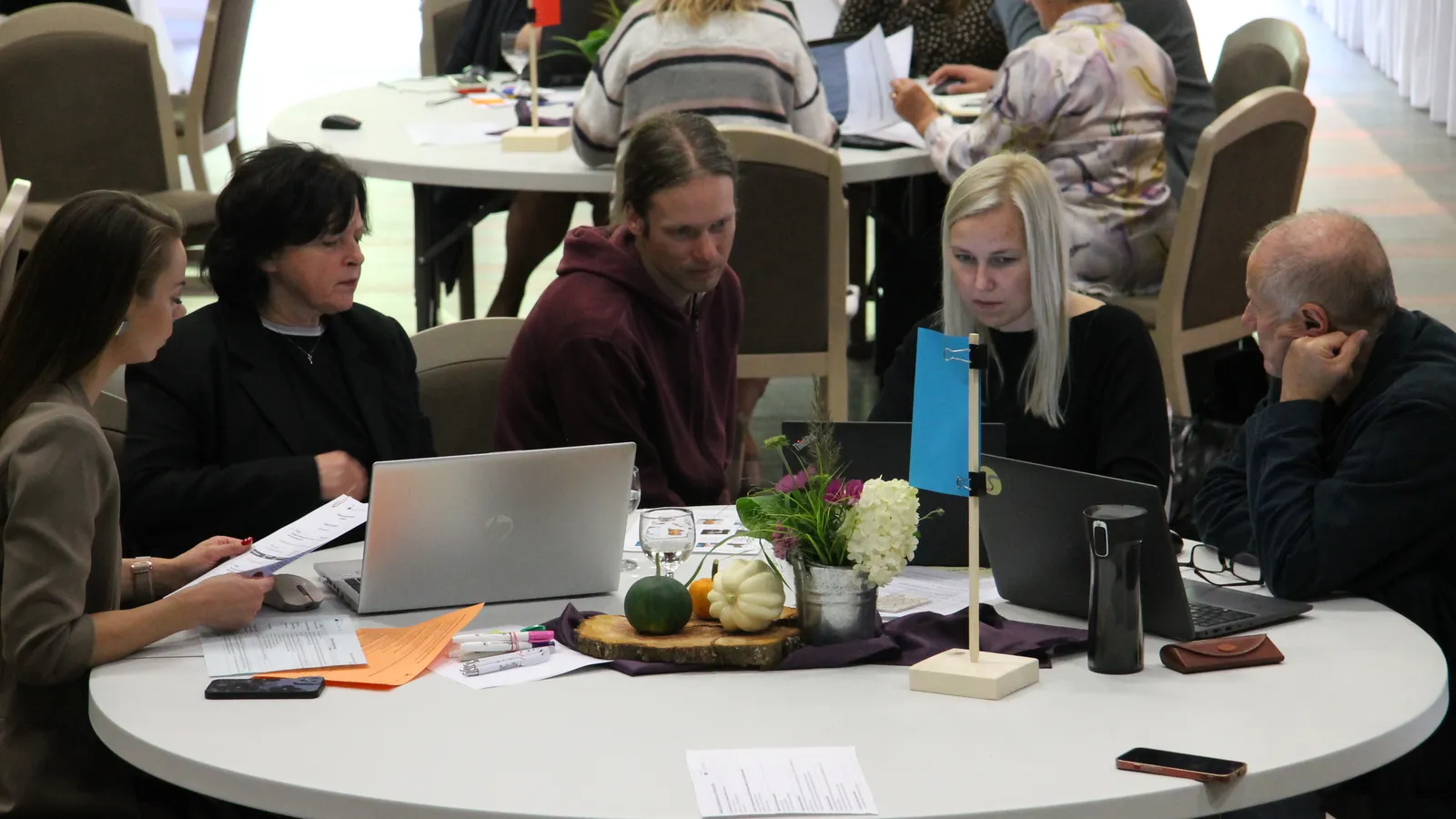On October 6, an online meeting marked the conclusion of the Data to Develop (D2D) hackathon, where results were presented to the Vidzeme Planning Region and future development directions were discussed. The event concluded the two-stage hackathon organized within the PoliRuralPlus initiative by NGO NovoFutura, aimed at creating innovative solutions for data monitoring and analytics while strengthening cooperation between municipalities and regional specialists.
Final Outcome - Indicator Framework and Application Concepts
The hackathon resulted in the creation of an indicator system framework with indicator passports (meta-information and methodology) designed for monitoring regional and municipal development. It brings together data from key areas such as education, social services, entrepreneurship, environment, and sustainability.
In addition to developing indicators, teams were able to propose practical solutions that add value to everyday work — tools that citizens and specialists can use for real impact. The winning team proposed the idea of a booking.com-style prototype for managing social housing and shared housing stock, including status and condition of each unit— a solution that supports both monitoring and accessibility for residents.
Aleksandrs Ļubinskis: “The Hackathon as a Catalyst for Awareness and Skill Transformation”
“The hackathon was valuable not only for its final outcome but for the process itself — it encouraged participants to think about data as a resource that must be used effectively. Many realized for the first time how important it is to understand what and how we can measure in our work. Only then can data truly support decision-making,” noted Aleksandrs Ļubinskis, main organaizer of hackathon and author of its methodology.
He emphasized that during the hackathon, participants experimented with various artificial intelligence (AI) tools, including those developed within the PoliRural project as well as widely used platforms like ChatGPT. These were applied for idea generation, indicator selection, methodology development, and data analysis simulations. This demonstrated that AI can significantly ease analytical work — provided that the goals are clear — both in data structuring and visualization.
Ieva Kalniņa: “Monitoring as a Shared Learning Process”
Ieva Kalniņa, representing the Vidzeme Planning Region, highlighted that the hackathon provided valuable insights into the importance of data and collaboration.
The greatest value was that we started speaking the same language about data. For many specialists, it was the first grasp of how data from different sectors can be understood and used for creating shared value if the same system is used and data is collected accordingly.
She added that the outcomes would serve as a foundation for further work on implementing a regional data monitoring system and training specialists.
Participant Reflections and Key Takeaways
Participants shared their impressions of the hackathon experience, identifying several key takeaways:
- Teamwork is power! Collaboration, collective thinking, and idea exchange were among the most valued aspects.
- Don’t be afraid to use AI. Participants noted that artificial intelligence represents new opportunities and practical assistance when used with clear objectives.
- Unified understanding of data standards. Many experienced, for the first time, agreement on terminology and data structuring approaches.
- New connections and experience. The hackathon fostered cooperation between municipalities and regional specialists, which is expected to continue beyond the project.
- Data is everywhere! Participants recognized that data is abundant — the key is knowing how to analyze and use it for decision-making.
Next Steps
At the end of the meeting, participants agreed to continue collaboration in thematic working groups to refine indicator methodologies and data usage practices. They also proposed forming specialist communities to ensure continuous experience sharing and knowledge transfer.
The Vidzeme Planning Region plans to build on the results of the D2D hackathon in upcoming initiatives, including a workshop in December focusing on innovation and digitalization of municipal processes.
The D2D hackathon demonstrated that data and AI tools can become real enablers of smarter decision-making — when used collaboratively and strategically.




Existing Comments